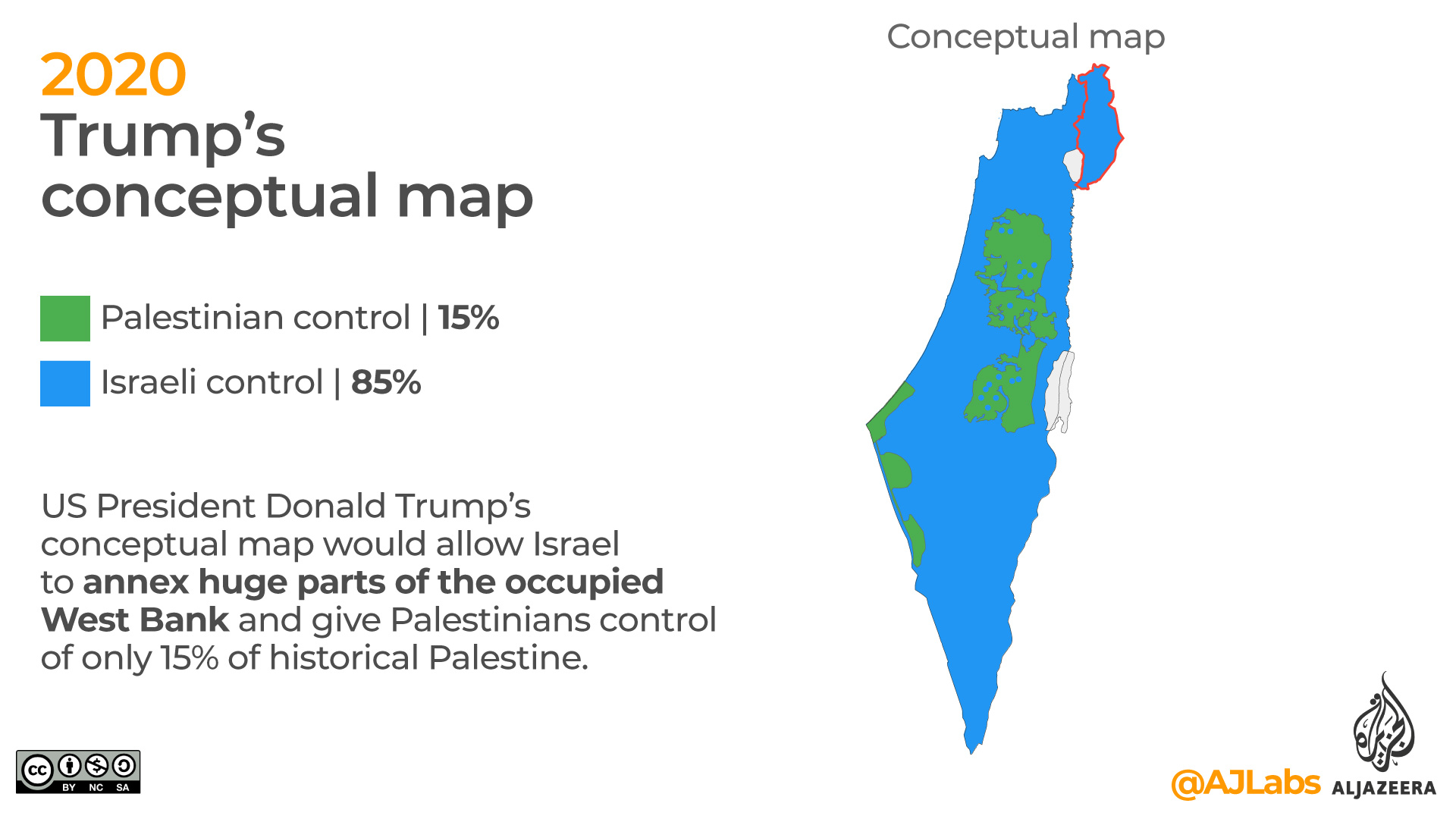Explainer: Israel’s annexation plan for occupied West Bank
Annexation of occupied territory such as West Bank is a major breach of international law, making planned move illegal.

Israeli Prime Minister Benjamin Netanyahu has said he will begin to annex one third of the already illegally occupied West Bank, including parts of the strategic Jordan Valley, in line with US President Donald Trump’s controversial so-called “Middle East plan”.
The plan, announced in January, proposes to establish a demilitarised Palestinian state on a patchwork of disjointed parts of the Palestinian territories.
Keep reading
list of 4 itemsWhat is Israel’s bulldozer strategy in the occupied West Bank?
Israeli raids cause ‘worst destruction in decades’ in Tulkarem
Several killed in Israel raid on West Bank as US, EU sanction more settlers
This does not include occupied East Jerusalem, which the Palestinian Authority (PA) claims as the capital of a state it seeks.
Trump’s Middle East plan has been largely met with scepticism and was rejected by Palestinian leaders, but Israel has taken it as a show of support for its plans to seize and extend its sovereignty over the occupied land.
|
|
What does annexation mean?
Annexation is a term used when a state unilaterally incorporates another territory within its borders.
Annexing the Jordan Valley would mean that Israel would officially consider it part of its state.
UN experts say the annexation of occupied territory is a serious violation of the Charter of the United Nations and the Geneva Conventions, and contrary to the fundamental rule affirmed many times by the UN Security Council and General Assembly that the acquisition of territory by war or force is inadmissible.
“Annexation is illegal. Period,” Michelle Bachelet, UN high commissioner for human rights, said in a statement on Monday. “Any annexation. Whether it is 30 percent of the West Bank, or 5 percent.”

According to international law, all settlements in the West Bank are illegal. The US, however, has rejected the consensus that Israeli settlements on Palestinian land are illegal.
“Decisions about Israelis extending sovereignty to those places are decisions for the Israelis to make,” Secretary of State Mike Pompeo told reporters last week.
What has the international reaction been?
|
|
The UN and the European Union say the plans threaten the possibility of reaching a peace agreement in the long-running Israeli-Palestinian conflict.
Arab countries have also warned the planned annexation could affect security in the region.
What are the consequences?
The planned Israeli annexation would deprive Palestinians of key agricultural land and water resources, especially in the Jordan Valley region.
It would also effectively kill the two-state solution to the Arab-Israeli conflict that was based on the idea of land for peace.
But many Palestinians would argue that the annexation is merely a formality for what has already been happening on the ground in the West Bank for years.
Increased settlement construction over the past years, along with Jewish-settler-only roads that connect to Israel, have carved the territory up, resulting in non-contiguous Palestinian cities, towns and villages that now exist in cantons.
How has Palestinian leadership reacted?
Mohammad Shtayyeh, the prime minister of the Palestinian Authority (PA), called the annexation plans an “existential threat” and said Palestinians will respond with their own measures.
In May 2019, the PA said it will cancel all bilateral agreements with Israel and the US.
Palestinian Foreign Minister Riyad al-Maliki warned any annexation would be a “crime” and lead to immediate and tangible repercussions.
The Gaza-based Hamas government has called for unity among Palestinians and popular acts of resistance against Israeli plans to annex parts of the West Bank.